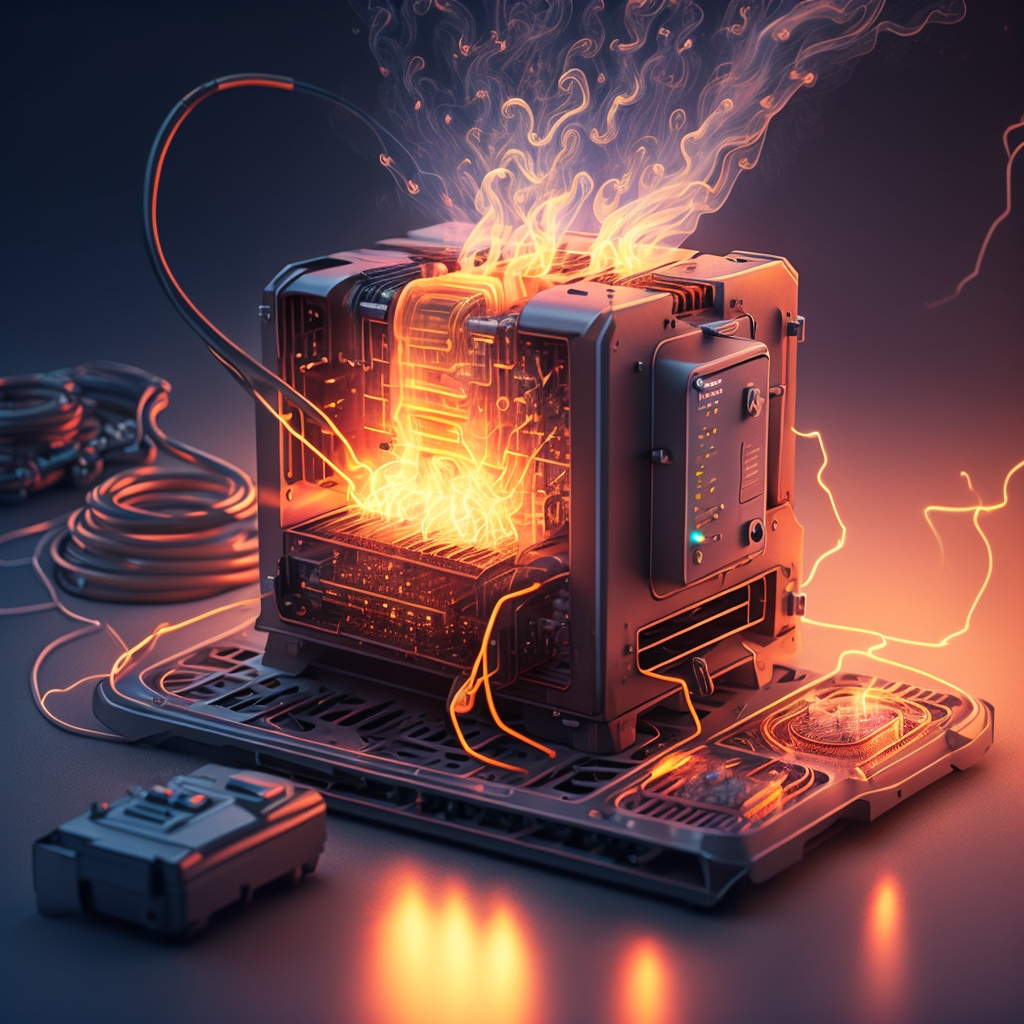“Why is Your Space Heater Tripping the Breaker? Unlock these 4 Surprising Reasons!”

Experiencing trips with your circuit breaker while using a space heater is a commonplace issue many homeowners come across. However, it’s crucial to note that dealing with electrical systems can be precarious. Therefore, if you’re unaccustomed to handling such matters, it’s always safer to call in an expert.
1) Overloaded Circuit with Space Heater:
Should you have multiple appliances running on one circuit, you’re likely to overload it, leading to a breaker trip. Overloading can lead to overheating or fire risks as a circuit can only withstand a certain number of devices. Avoid overcrowding electrical outlets and ensure each device has its own dedicated wire leading to the panel box. Please visit this article to better understand your home’s circuit wattage allotment based on the configuration. For a 15 amp circuit, avoid plugging in a heater drawing more than 12 amps. To maintain safety, distribute appliances among different circuits.
2) Space Heater Attached to an Extension Cord:
Don’t couple your space heater with ordinary extension cords; the current resistance produced can cause overheating and wire fraying. If your cable exceeds its rated length, it can generate resistance, disrupting electrical current flow, which could trip a breaker. Rather than combining two cords to achieve the desired length, buy a cord of appropriate length and plug it directly into the wall.
3) Faulty or Overheating Space Heater:
If your heater is remaining on excessively or overheating, there might be an issue with the cord or one of the heating elements. In case of overheating, disconnect the heater and let it cool for at least an hour before any further action. Frequent overheating can lead to internal wire damage, burn out of heating elements, and increased power pull from your circuit, risking a breaker trip. If your heater is causing repeated circuit trip, inspect the cord for damage, or seek electrician assistance. If the anomaly persists, consider replacing your space heater.
4) Malfunctioning Breaker:
Lastly, you might be dealing with a faulty breaker, which can fail due to excessive use or damage from overheating when overloaded. If the breaker trips even when there are no evident disruptive issues with the cord or heating element, the breaker could be the culprit. Test your breakers by alternate appliance plugging post resetting the breaker, preferably with an appliance demanding less power. If the breaker still trips, it could be defective or loose. If you’re unable to handle it, seek help from a professional electrician. For further insights on home electrical wiring, refer to the National Electrical Code.
Ultimate Solution when Nothing Else Works!

If all other possibilities have been discounted and you’re still clueless about what’s triggering it, then it’s advisable to seek the assistance of a certified electrician without further delay. The crux of the matter is – avoiding any potential risks to your safety is crucial when dealing with electrical repairs, particularly with high voltage scenarios. A quick workaround advice is to invest in a top-notch heater, and if feasible, dedicate a separate circuit for it.
One of the widespread issues is the fact that several individuals are ignorant of the need for a space heater to be plugged into adequately grounded wall outlets. Failing to do this could potentially result in a fire hazard due to any defective wiring. Instead of personally attempting to access wires situated in challenging locations, like beneath your dwelling, it’s wiser to contact an electrical expert who is equipped with knowledge about essential safety measures to prevent any mishaps.
Related Questions
How does one go about switching off a circuit breaker for a space heater?
Ordinarily, the source of the power supply has a notification on the label directing which breaker powers it. It’s advised to switch off this specific breaker and only permit it to function when operating the space heater.
Why does my outlet heat up when I turn on my heater?
This could be a warning sign of defective wiring. The root of the problem could be various factors, such as the switch, outlet, or breaker. It’s crucial to contact an electrician to identify the cause as this can lead to a major fire threat.
Moreover, it’s interesting to note that some advanced heaters come with thermal cut-out safety devices that automatically shut off the heater if it gets too hot, offering an additional layer of safety. Also, using a Workspace Circuit Analyzer is a great way to identify potential wiring problems before they escalate, offering additional peace of mind.
